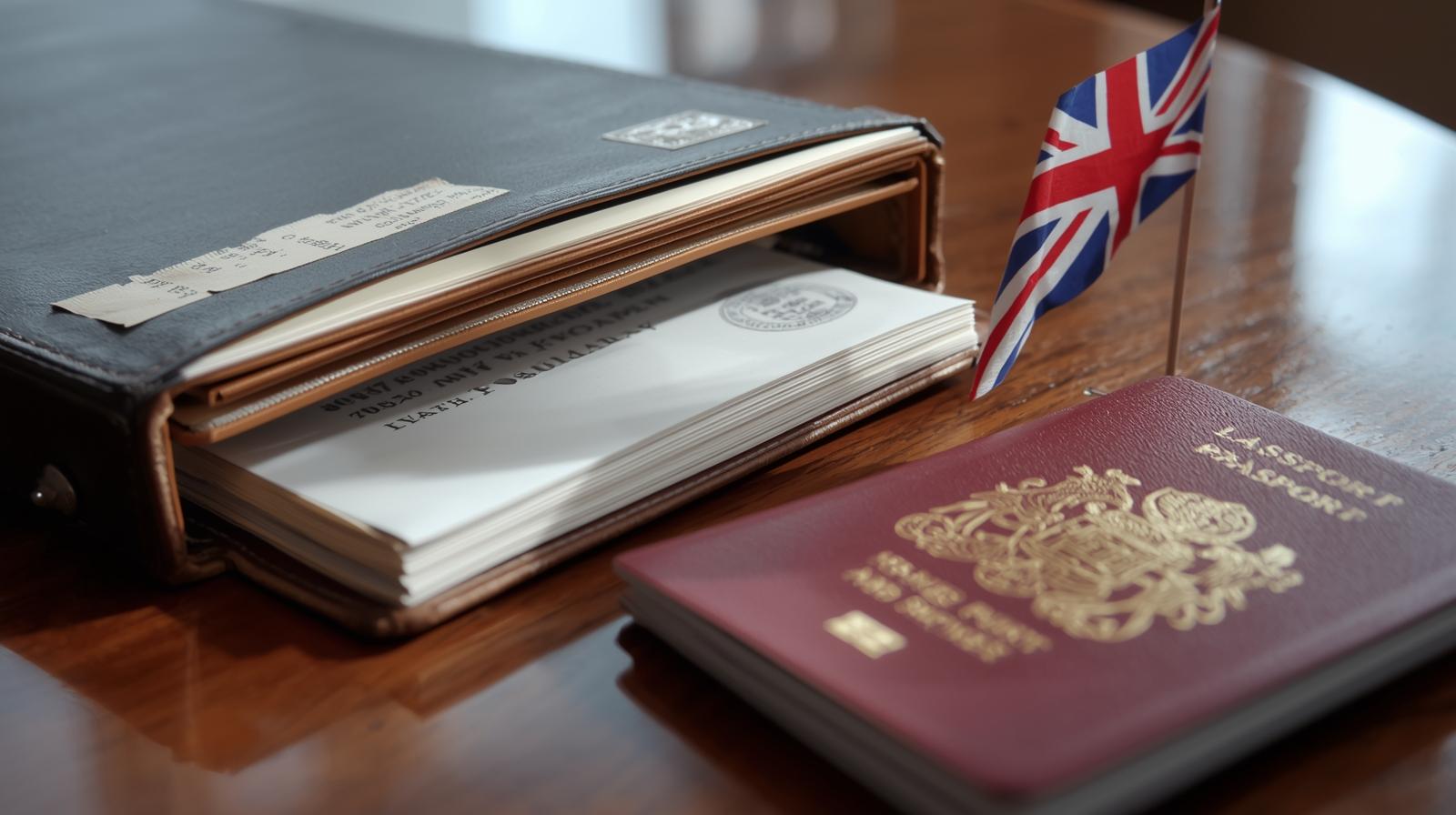When applying for a UK visa, asylum, or any immigration process, one of the most crucial requirements is certified Urdu to English translation UKVI approved. From birth certificates to police reports, the UK Home Office demands translations that meet strict legal standards. A simple error, missing certification, or the use of a non-approved translator can lead to unnecessary delays—or even rejection of your application.
That’s why choosing the right translation service is not just about language—it’s about compliance, accuracy, and trust. In this guide, we’ll explore why certified translations matter, common mistakes applicants make, how translation services work across major UK cities like London, Birmingham, Manchester, Leeds, and Glasgow, and what documents typically need UKVI approval.
Disclaimer: We do not give any legal advice to any client. We only do Translation we do not give any authenticity and security and clarity of the documentation, as a disclaimer., we only do the Translation, it is the responsibility of the applicant to make sure they maintain authenticity of the document, if the documents are not authentic, the translation will be void.
Why Certified Urdu to English Translations Matter for UKVI?
Certified translations are more than just word-for-word conversions. They carry:
- Translator’s certification statement confirming accuracy.
- Translator’s contact details and credentials for verification.
- Acceptance by UKVI and other government bodies.
This is especially important for asylum documents, affidavits, and academic transcripts. Without certification, your translated documents will likely be rejected.
Key Documents That Require UKVI-Approved Translation
If your documents are in Urdu, you will need professional certified translation for:
- Birth Certificates (for immigration and passport applications)
- Marriage Certificates (family/spousal visa)
- Police Reports (criminal record checks)
- Educational Transcripts (student visas, university admissions)
- Medical Records (health-related applications)
- Affidavits & Court Orders (legal and asylum cases)
Example: An asylum seeker from Pakistan had their application delayed for three months because their Urdu police report was translated by a non-certified freelancer. Once resubmitted with a UKVI-approved certification, the case proceeded without issue.
The Tanveer Principle in UK
The Tanveer Principle in the UK plays a vital role in ensuring fairness within asylum and immigration cases. It guides decision-makers to rely on credible, verifiable evidence rather than assumptions or personal impressions.
This principle protects applicants by ensuring that caseworkers assess documents carefully, especially when authenticity is questioned. It prevents unfair refusals based on speculation.
In the UK immigration system, the Tanveer Principle strengthens transparency and accuracy. It ensures that every applicant is judged on the basis of proper evidence, promoting justice and consistency throughout the asylum and immigration process.
Certified Urdu to English Asylum Translation UKVI Approved – setranslations.uk
At setranslations.uk, we provide fast and reliable Certified Urdu to English Translation that meets UKVI requirements. Our certified translators ensure your documents are clear, accurate, and professionally formatted for official use.
We handle asylum papers, immigration documents, educational records, birth certificates, and more—always maintaining high-quality standards. Every translation is carefully checked to meet UK government expectations.
Disclaimer: We do not give any legal advice to any client. We only do translation; we do not give any authenticity, security, or clarity of the documentation. It is the responsibility of the applicant to ensure their documents are authentic.
Understanding UKVI Translation Requirements
The UK Visas and Immigration (UKVI) department has strict rules regarding translations. Any document not originally in English must be translated by a qualified professional who can certify the accuracy and completeness of the content. UKVI does not accept translations done by uncertified translators, unverified agencies, machine translation tools, or applicants themselves.
A UKVI-approved certified translation must include several mandatory elements:
A Signed Declaration by the Translator or Translation Company
This declaration must confirm that the translation is an accurate and true representation of the original Urdu document.
Translator or Agency Details
This includes the name, address, and contact information of the translator or translation provider.
Date of the Translation
UKVI requires a specific date to prove when the document was translated.
Translator Qualifications
The translator or agency must provide proof of competence in translating from Urdu to English.
At setranslations.uk, every translation is issued with a professional certification statement that meets UKVI standards. Our certified translations are accepted by the Home Office, UK courts, universities, employers, and official bodies nationwide.
Expertise of setranslations.uk in UKVI-Approved Urdu to English Translation
setranslations.uk is a trusted name in the UK translation industry. Our team consists of expert Urdu linguists and certified translators who specialise in UK immigration regulations. Every translator is professionally trained and experienced in translating sensitive documents for visa, legal, educational, and business purposes.
We maintain a 100% acceptance rate with UKVI because:
- Our translations meet official Home Office requirements
- Every document undergoes quality checks and proofreading
- We maintain consistency, accuracy, and proper formatting
- Our certification includes all mandatory information for approval
- We understand the cultural and linguistic complexities of Urdu documents
This level of expertise is especially important when translating handwritten texts, older documents, or regional variations in Urdu usage. Many documents contain idioms, legal terms, religious references, or specific cultural wording that must be interpreted with precision. Our translators ensure that every detail is correctly translated into high-quality English.
Our Certified Translation Standards
At setranslations.uk, we adhere to strict quality standards to ensure every translation is accepted by UKVI and all other UK institutions. Our certified translations always include a professional declaration confirming accuracy and completeness. We also ensure that the formatting matches the original document as closely as possible, maintaining seals, stamps, and layout structures.
Each translation undergoes a multi-stage review:
- Initial translation by a professional Urdu-English translator
- Detailed proofreading to remove errors or inconsistencies
- Formatting checks to mirror the original document’s layout
- Final verification and certificate issuance.
We provide translations in secure digital PDF format and, when required, printed copies with seals and signatures. Both formats are fully compliant with UKVI guidelines.
Types of Urdu Documents We Translate
- Birth certificates
- Marriage certificates
- Nikah Nama
- Divorce certificates
- Passports and ID cards
- Police clearance certificates
- Academic degrees and transcripts
- Bank statements
- Financial records
- Legal affidavits
- Employment letters
- Business papers
These are among the most common documents submitted to UKVI. Each requires careful handling because incorrect names, misread handwriting, or mistranslated terminology can cause procedural complications. Our translators handle each document with accuracy, confidentiality, and respect.
Key Features of Our UKVI-Approved Urdu to English Translation
setranslations.uk offers features that make the translation process smooth and reliable for applicants. We provide fast turnaround times, including same-day delivery for urgent cases. Our pricing is transparent and affordable, ensuring accessibility for individuals and families. Every translation comes with a professional certification, and we also offer notarised or solicitor-certified translations upon request.
Our service includes:
- UKVI-approved certified translations
- High accuracy and attention to detail
- Same-day or 24-hour delivery options
- Secure digital and hard-copy formats
- 100% acceptance by UKVI, Home Office, and UK authorities
- Support for urgent deadlines and last-minute visa requirements
These features have made us a preferred choice for hundreds of clients across the UK.
Location-Specific Services Across UK Cities
Certified Translations in London
With London being the hub for immigration applications, same-day notarized translations are often requested.
Urdu to English Translation in Birmingham
Affordable options are common here, catering to large South Asian communities.
Manchester & Leeds
Universities frequently require certified academic transcripts.
Glasgow
Scottish immigration offices demand strict adherence to UKVI rules, making certified translation essential.
Document Requirements for Certified Translations
Here’s a quick guide to what is usually required for a UKVI-approved certified translation:
| Requirement | Description |
| Full Translation | Every word must be translated, including stamps and seals. |
| Certification Statement | Translator must confirm it’s a true and accurate translation. |
| Translator’s Credentials | Name, signature, and contact information must be included. |
| Date of Translation | Must be clearly mentioned. |
| Layout Matching | The translated version should mirror the format of the original. |
Who Needs UKVI-Approved Urdu to English Translation?
Many individuals and organisations require certified Urdu to English translations for various official purposes. These include visa applicants, students submitting academic credentials, asylum applicants, families applying for settlement, businesses presenting foreign documents to UK authorities, and professionals seeking work permits.
In all these cases, UKVI-approved certified translation is essential to ensure that the documents are accepted without queries or delays. setranslations.uk helps clients from all backgrounds secure their immigration goals by providing high-quality translations that meet every official requirement.
Frequently Asked Questions (FAQ)
Is Your Translation Accepted by UKVI?
Yes. All translations from setranslations.uk include certification that meets UKVI and Home Office requirements.
Do You Offer Notarised or Solicitor-Certified Translations?
Yes. These options are available if additional legal verification is required.
Can You Translate Handwritten Documents?
Absolutely. Our translators are trained to interpret handwritten Urdu text accurately.
What If my Urdu Document Is Old or Damaged?
We can still translate it as long as the text is readable. Our team will work carefully to ensure accuracy.
How Long Does It Take?
Standard turnaround is 24–48 hours. Urgent same-day delivery is available.
Conclusion
Certified Urdu to English translation is a crucial requirement for UK visa and immigration applications. UKVI demands accuracy, completeness, and proper certification, making it essential to choose a trusted translator. At setranslations.uk, we specialise in delivering UKVI-approved translations that are accurate, professional, and fully compliant.
Our expert team ensures that every document—whether personal, legal, academic, or financial—is translated to the highest standard. With secure handling, fast delivery, competitive pricing, and guaranteed acceptance by UK authorities, we are the trusted choice for applicants across the UK.
If you need a reliable UKVI-approved Urdu to English translation, setranslations.uk is ready to assist you with professional service and complete peace of mind.
Disclaimer: We do not give any legal advice to any client. We only do Translation we do not give any authenticity and security and clarity of the documentation, as a disclaimer., we only do the Translation, it is the responsibility of the applicant to make sure they maintain authenticity of the document, if the documents are not authentic, the translation will be void.

Mr Muhammad Ahmad
Mr Muhammad Ahmad is a qualified and highly experienced linguist and legal professional based in London, United Kingdom. He is a full Member (MCIL) of the Chartered Institute of Linguists (CIOL) with CIOL Membership Number 92688. His native language is Bengali and English, and he is officially listed on the CIOL’s Find-a-Linguist directory for professional English to Bengali translation.










